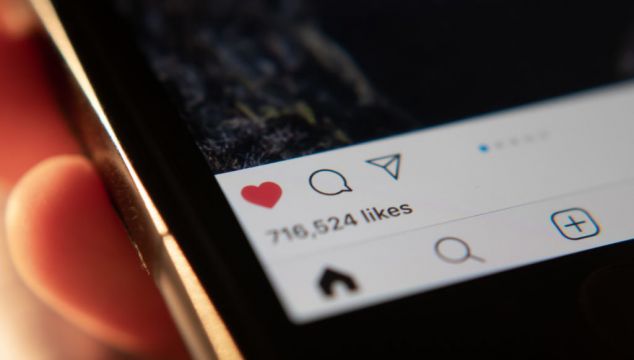In what is being called the ‘great social media blackout of 2021’, for more than five hours on October 4th, the impossible happened: Facebook, Instagram and WhatsApp all went down.
For so many of us heavily reliant on social media and messaging sites to entertain ourselves and communicate with friends and family, it was something close to a nightmare.
Facebook blamed a “faulty configuration change” for the outage which caused a “cascading effect” bringing platforms to a halt, and while it’s now fixed, it was a sharp reminder of how dependent we are on social media. Many of us rushed to other platforms such as Twitter to get our fix, and even resorted to (gasp) actually texting or calling our friends.
hello literally everyone
— Twitter (@Twitter) October 4, 2021
Advertisement
“What’s really interesting with the outage is the immediate digital detox that we were all forced to engage with that wasn’t voluntary,” says Dr Rachael Kent, lecturer in digital economy and society at Kings College London and founder of Dr Digital Health. “We’re all now grappling day-to-day with managing our digital nutrition and our digital habits, trying to have healthier relationships with our tech [so it’s] not to be too addictive and compulsive.
“However with the outage we were forced immediately to stop reaching for our phones, or even if we were reaching for our phone, not getting that dopamine kick, and that entertainment and sociality from the device that we are so used to having so readily available at our disposal whenever we want it.”
This showed just how addicted many of us are to social media. “It was hugely challenging and immediately forced us to not only have a digital detox, but also confront our addictive relationship with not only our phones, but also the applications themselves,” explains Kent.
Has anybody tried turning it off and back on again?#SocialMediaDown pic.twitter.com/zflirxaNBF
— jklincoln (@Jkhlincoln) October 4, 2021
Advertisement
If you’re a habitual user of Facebook, Instagram or WhatsApp, you might have found yourself constantly opening the apps, only to remember they were down. For Kent, this relationship “really illustrates how much they’d have become an extension of our physicality, as a mediating tool to enable so much: community, connection, communication, sociality. The inability to stop picking it up despite the fact that you know it’s not working really illustrates that dependence.”
This forced hiatus might have stirred up some negative emotions – particularly for businesses running on these platforms. “On the business front, there’s always going to be a lot of anxiety around not being able to manage and run your business effectively,” Kent explains. “We live in an always-on, always-available culture that was immediately halted.”
She suggests the average user of the apps would have also experienced “anxiety, but for different reasons – the inability to be able to scroll, doom scroll or habitually scroll, to not be able to access products and services you might want to buy, as well as not being able to chat with one’s friends.”
Damn I just noticed I’m addicted to Instagram
— OFFSET (@OffsetYRN) October 4, 2021
Kent hopes the outage will cause us to re-evaluate our relationships with these addictive apps. “I would like to think it forced us to think, what can I do to entertain myself? How can I communicate with friends and family without using these platforms? And also forced us to think about non-digital analogue methods of entertainment, so reading a book, journaling, cooking a meal, for example,” she says.
In an ideal world, the outage will cause us to have a healthier online life, but “the reality of that?” she asks, “I don’t know how long that will last.”







